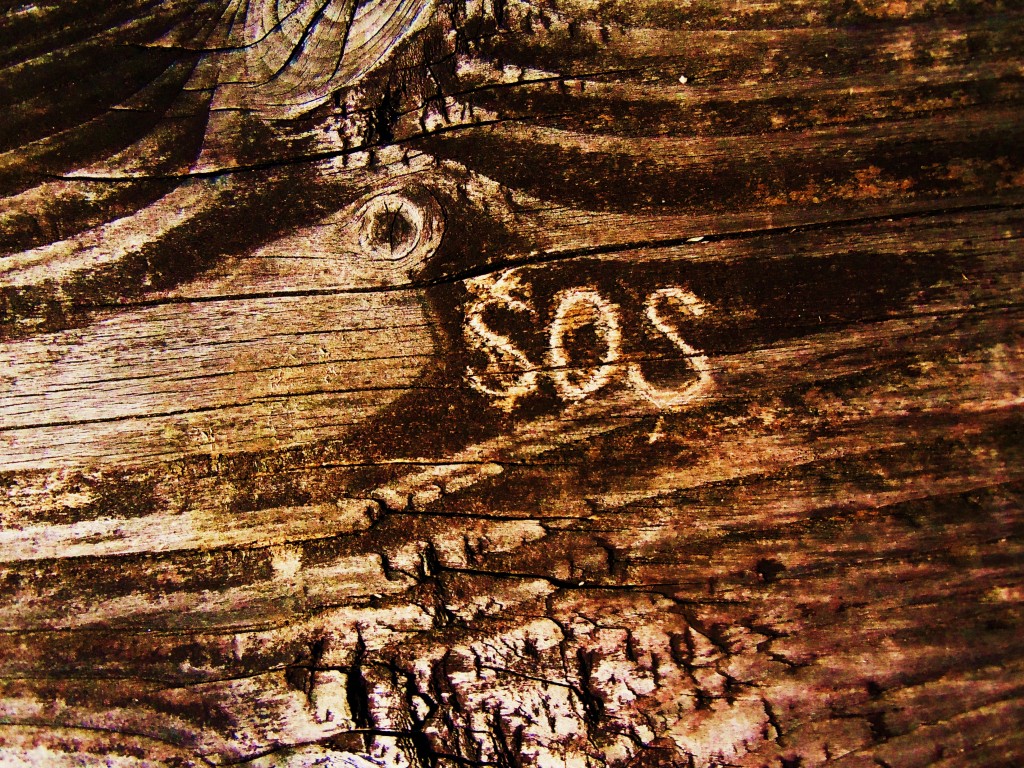I feel reflective when I return from my annual trek in the California coastal mountains amidst the ancient redwoods. I work there every summer with a fine group of courageous people who are engaged in the process of intentional personal growth. The team of facilitators uses a powerful combination of systems, experiential, and Gestalt approaches for symbolically creating the inner world of the participants. When someone is “working”, and the messy parts of their lives are tangibly laid out in front of them, they are typically first given a support figure. Support is necessary to wade out in to the scary parts of life. Support is required for healing.
It’s been another hard week of unprovoked gun violence in our country. Useless, tragic deaths–on both sides of the well-developed controversy. People have increasingly turned to social media to vent their outrage and pain and to seek empathy. So why do we do this? Maybe people are looking for support.
Support is necessary to wade out in to the scary parts of life. Support is required for healing. --LiM2 Click To TweetWe need to hear the empathic voices of others. On social media, when someone offers an oppositional voice, they might be cut off by the other person. Unfriend them. Stop following them. Block them. Opposing voices are not what people are looking for—they want support. I get it. These issues that come between people appear so vast that many of us feel helpless, hurt, and even hopeless. I know I do. Do the ways in which I conscientiously behave in the world have no impact on this problem of innocent murders? It leaves me wanting to seek the comfort of others. I want support.
 I’ve said this many times: Grief is healed in community—largely because we come together to support one another. It is what makes support groups effective. It is one of the benefits when we are a part of a spiritual community. Definitions of support include words like comfort, assist, help, bear the weight of. Support might be a warm hug, someone who comes to sit by you, an empathic ear, a caring hand on the back, an unexpected phone call, a hot meal delivered, a thoughtful card … the possibilities of ways to support one another are limitless. And we need this. During times of struggle and pain, we need a supportive connection with others. But sometimes, those giving support are reluctant to ask for support. “But I’m the one everyone else leans on.” I hear this so often, and yet, that is the person sitting in my office in distress because they have difficulty asking for support. Why do we see this as “weak”?
I’ve said this many times: Grief is healed in community—largely because we come together to support one another. It is what makes support groups effective. It is one of the benefits when we are a part of a spiritual community. Definitions of support include words like comfort, assist, help, bear the weight of. Support might be a warm hug, someone who comes to sit by you, an empathic ear, a caring hand on the back, an unexpected phone call, a hot meal delivered, a thoughtful card … the possibilities of ways to support one another are limitless. And we need this. During times of struggle and pain, we need a supportive connection with others. But sometimes, those giving support are reluctant to ask for support. “But I’m the one everyone else leans on.” I hear this so often, and yet, that is the person sitting in my office in distress because they have difficulty asking for support. Why do we see this as “weak”?
During times of struggle and pain, we need a supportive connection with others.
Grief is healed in community—largely because we come together to support one another.
Psychologist Sue Johnson calls it an ancient survival code—our sense of belonging and need for intimate connection. “Having someone come when you call is the single most powerful motivational force in our brains.” She says if we call and no one comes, it is terrifying. Johnson further states that “research has shown that emotional isolation is more dangerous than smoking or lack of exercise. We are three times more likely to experience stroke or heart attack when we face the world alone.” Without support, we feel completely alone in the world to navigate tough times. Johnson says our need to connect is so powerful that she calls it the First Law of Love: A survival code regulating our sense of danger and a template we are left by our original caregivers.
The problem develops when a child’s early caregivers are abusive, neglectful, or just don’t know how to connect and give support. The early message the child receives is, “Don’t need me. I can’t help.” In that way, a “child care-giver” is born (not to be confused with a childcare giver). These children grow up to be the people who chronically care for others and don’t ask for support for themselves. If we get stuck in that role, others forget we also might need support. Bottom line: We might have to ask for support. (I think I just heard a collective “ew!” from some readers!)
 How can we communicate support to others? Maybe kind words of support are all anyone wants when they are posting in social media. Aside from the acts of support listed above, we can use the language of empathy, such as, “I understand.” “I often feel that way too.” “I share your (hurt, outrage, etc.)” Or we can make verbal offers like “I’m available for you.” “I’m on my way.” “I want to be with you right now.” Or even, “How can I help you right now?” (Although, honestly, people often really don’t know.) And sometimes, all we need is someone sitting silently by our side. The message? “I can help bear this with you.”
How can we communicate support to others? Maybe kind words of support are all anyone wants when they are posting in social media. Aside from the acts of support listed above, we can use the language of empathy, such as, “I understand.” “I often feel that way too.” “I share your (hurt, outrage, etc.)” Or we can make verbal offers like “I’m available for you.” “I’m on my way.” “I want to be with you right now.” Or even, “How can I help you right now?” (Although, honestly, people often really don’t know.) And sometimes, all we need is someone sitting silently by our side. The message? “I can help bear this with you.”
So Seek Support because Life is Messy and Life is Marvelous.
Rhea



Gosh, this is so so hard! It’s difficult when the people who have been your main source of support (i.e your family) are done with you. And while I know I am 34 years old and in their eyes still can’t seem to “get my shit together,” I never stop wanting my parents approval. Asking for help as of recent has been like pulling teeth. But this is so incredibly true…we aren’t meant to walk this life alone! Thanks for posting!